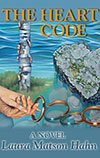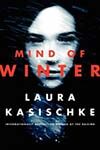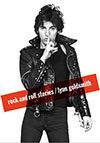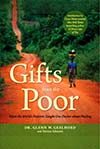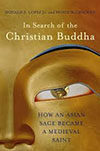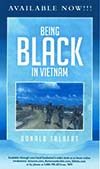Alumni Books
-
The Heart Code
by Laura Matson Hahn
When 16-year-old Bertra Vogen fled Bohemia in 1870 for an arranged marriage to a New York City hardware merchant, she believed she had left behind her most egregious mistake. But 60 years later, now a widow living in Connecticut with her son and daughter-in-law, she feels compelled to return to her beloved homeland with her 16-year-old granddaughter, Celeste. Bertra hopes that her only heir will embrace the wonder of their Bohemian heritage and discover the wisdom of her own “heart code.”
But Celeste’s mother, Myrtle, an Irish immigrant, has other plans for that very same summer. The next four years do not unfold according to anyone’s plans as Celeste struggles to find her own way, torn between her mother’s social-climbing desires and her grandmother’s counsel to follow the yes in her heart.
Set in the 1930s, this heartwarming, inspirational adventure follows three friends, two families, and one unforgettable grandmother over two continents and four years as it reveals the map for discovering one’s own “heart wisdom” … and the secrets of the Bohemian Way.
Hahn, who earned a masters degree in communications from U-M in 1979, grew up in Glen Rock, N.J., and now resides in Bucks County, Pa.
-
Mind of Winter
by Laura Kasischke
Laura Kasischke teaches in the MFA Program at U-M’s Residential College. She is the critically acclaimed and nationally bestselling poet and author of The Raising. Now she returns with Mind of Winter, a dark and chilling thriller that combines domestic drama with elements of psychological suspense and horror—an addictive tale of denial and guilt that is part Joyce Carol Oates and part Chris Bohjalian.
On a snowy Christmas morning, Holly Judge awakens with the fragments of a nightmare floating on the edge of her consciousness. Something followed them from Russia. Thirteen years ago, she and her husband Eric adopted baby Tatty, their pretty, black-haired Rapunzel, from the Pokrovka Orphanage #2. Now, at 15, Tatiana is more beautiful than ever—and disturbingly erratic.
As a blizzard rages outside, Holly and Tatiana are alone. With each passing hour, Tatiana’s mood darkens, and her behavior becomes increasingly frightening … until Holly finds she no longer recognizes her daughter.
-
Rock and Roll Stories
by Lynn Goldsmith
The story of rock lives in Lynn Goldsmith’s photographs. After coming of age in the Midwest in the tumultuous 1960s, Goldsmith (AB/ABEd ’68) crashed the music scene in New York and emerged as one of its leading image-makers. She chronicled Bruce Springsteen’s passage to glory, the Rolling Stones’ legendary stadium tours, Michael Jackson’s staggering ascent, U2’s arrival in New York, and the brooding force of Bob Marley. Culture heroes like Bob Dylan and Patti Smith became frequent subjects for her lens. The range of her work is staggering.
In Rock and Roll Stories, Goldmsith shares the best of this work. Her commentary takes the reader into the studio, the tour bus, the concert hall, and the streets where the pictures were made, offering revealing perspectives on her subjects and herself. A greatly expanded and newly designed edition of her book PhotoDiary (1995), this volume captures the story of a generation’s loyalty to rock and roll.
-
Gifts from the Poor
by Dr. Glenn W. Geelhoed with Patricia Edmonds
For more than four decades, surgeon and educator Glenn Geelhoed has taken medical missions to the poorest parts of the globe to treat patients at no cost. Gifts from the Poor takes readers along on his journey. Whether he is stitching wounds, delivering babies, mentoring younger colleagues, or challenging destructive cultural practices, Geelhoed constantly discovers the power and dignity of each individual. From solid, Midwestern beginnings, Geelhoed developed a profound drive to explore the world. What he found both thrilled and goaded him, and shaped a career in which he jousted with medical establishments, confronted corruption, and followed his own instincts. Geelhoed exposes the true mechanics of foreign medical aid and proposes a game-changing alternative: an approach to medical service in which those who would heal and treat in fact end up learning from their resilient, resourceful patients.
An inspiring tale of compassion, conviction, and grit, Gifts from the Poor is Geelhoed’s invitation to join him in promoting global health. All proceeds will be donated to the Medical Mission Hall of Fame Foundation.
-
In Search of the Christian Buddha
by Donald S. Lopez Jr. and Peggy McCracken
In their comprehensive study of the Buddha’s appropriation by Muslim and Christian believers, In Search of the Christian Buddha: How an Asian Sage became a Medieval Saint, Donald S. Lopez Jr., the Arthur E. Link Distinguished University Professor of Buddhist and Tibetan Studies, and Peggy McCracken, translator of Gui de Cambrai’s Barlaam and Josaphat and professor of French and women’s studies, trace the story’s circuitous pilgrimage and consider the duality that shaped its trans-religious appeal. Ultimately, the authors explore an unwitting dialogue between great religions, illuminating their surprising similarities as well as their stark differences.
Through a definitive comparison of the tale’s various iterations, spanning more than 2,000 years of religious and cultural history, In Search of the Christian Buddha reveals common human values but also details a legacy of conflict and intolerance. It is, in a sense, a story of missed opportunities, of a universal truth hidden in the potency of one ancient story.
-
Being Black in Vietnam
by Donald Talbert
Being Black in Vietnam chronicles the experience of Donald Talbert, ’77, while serving in the military during a tour of duty in Vietnam. He provides a snapshot of various confrontations with his white counterparts and details how he was mistreated “by the same people who were supposed to protect me.” Talbert says he went from “hating almost all white people” to only hating those “who were trying to make life miserable for me.”
In the end, Talbert made the conscious decision not to be aggressive toward anyone “unless it was warranted to keep me out of harm’s way.” One thing that became evident, he says, was that it “wasn’t very many black people who came to my aid. It was mostly white people.” He also realized that most of the help he received was because he was willing to stand up for himself at all costs.
-
Dogs with Old Man Faces: Portraits of Crochety Canines
by Tom Cohen
Your dog’s puppy days are long gone, but sometimes you think you love him even more for being an old fart. He looks at you with those big brown eyes, full of experience and widsom, and you can see the old man behind that furry face. You know he’s bewildered by these young pups today, and he wonders why they let their tails get all poofy, or why they insist on staying out all night capering around with the neighborhood cats.
Dogs with Old Man Faces is a photographic treasury of old salty dogs, accompanied by droll captions like “Pedro likes Old Spice and Sinatra,” “Jack enjoys a cup of hot Sanka,” and “Chet is still upset they cancelled ‘Matlock.'”
Now you can honor your whiskered old fogey and let him know you still care—even if he can’t jump the fence anymore.
Author Tom Cohen, LSA ’92, is a multiple Emmy-winning producer with almost 20 years in the TV business. He graduated from U-M with honors. In his free time as a student, he was very involved with U-M’s comedy troupe Comedy Company and started Michigan’s first improvisational comedy group, Highly Improvable.
-
Hunted
by Elizabeth Heiter
A depraved serial killer is on the loose, attacking unsuspecting victims and disposing their bodies in horrific fashions. But when the FBI sends in their most gifted profiler to shed light on the killer, the monstrous murderer decides to target her as his next victim and turn the hunter into the hunted. From debut author Elizabeth Heiter, Hunted is the spine-chilling first story in her edgy, heroine-led FBI thriller series featuring deadly villains and psychological twists.
As one of the FBI’s most talented profilers, special agent Evelyn Blaine solves unusual and deadly murders by getting in the heads of killers—understanding how they think, how they choose victims and why they kill. Evelyn knows what true evil looks like and she knows how to find it. But even Evelyn has never seen a murder scene like that of the Bakersville Burier—a killer who leaves his victims buried vertically up to their necks in the deep, dark woods of Virginia. Evelyn is convinced, however, that the killer is nearby, watching, and ready to strike again. She knows that for every minute he’s not found, his next target comes that much closer to death. But what Evelyn doesn’t know is that she is his next target.
Heiter graduated from U-M in 2001 with a degree in English literature. Her manuscripts have been finalists in Golden Heart®, Marlene, Daphne du Maurier, and Golden Gateway contests and she won Suzanne Brockmann’s 2010 Haiku Contest. She’s a member of International Thriller Writers and Romance Writers of America and has volunteered for several chapters, including serving as the Greater Detroit area president.
-
Tocqueville in Arabia
by Joshua Mitchell
The Arab Spring, with its calls for sweeping political change, marked the most profound popular uprising in the Middle East for generations. But if the nascent democracies born of these protests are to succeed in the absence of a strong democratic tradition, their success will depend in part on an understanding of how Middle Easterners view themselves, their allegiances to family and religion, and their relationship with the wider world in which they are increasingly integrated.
Many of these same questions were raised by Alexis de Tocqueville during his 1831 tour of America, itself then a rising democracy. Joshua Mitchell spent years teaching Tocqueville’s classic account,Democracy in America, in America and the Arab Gulf and, withTocqueville in Arabia, he offers a profound personal take. One of the reasons for the book’s widespread popularity in the region is that its commentary on the challenges of democracy and the seemingly contradictory concepts of equality and individuality continue to speak to current debates. While Mitchell’s American students tended to value the individualism of commercial self-interest, his Middle Eastern students had grave doubts about individualism and a deep suspicion for capitalism, which they saw as risking the destruction of long-held loyalties and obligations. When asked about suffering, American students answered in psychological or sociological terms, while Middle Eastern students understood it in terms of religion. Mitchell describes modern democratic man as becoming what Tocqueville predicted: a “distinct kind of humanity” that would be increasingly isolated and alone. Whatever their differences, students in both worlds were grappling with a sense of disconnectedness that social media does little to remedy.
We live in a time rife with mutual misunderstandings between America and the Middle East, and Tocqueville in Arabia offers a guide to the present, troubled times, leavened by the author’s hopes about the future.

